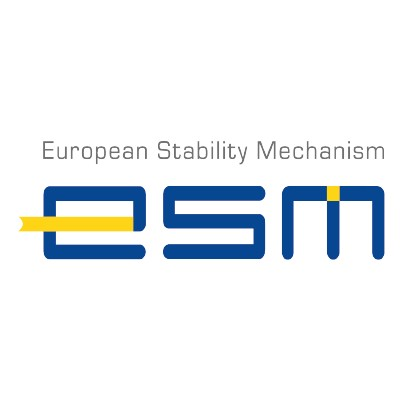EU's Antitrust Probe: Corning's Gorilla Glass Under Scrutiny
November 9, 2024, 1:17 am

Location: United States, New York, City of Corning
Employees: 10001+
Founded date: 1851
Total raised: $104M

Location: Belgium, Brussels-Capital, Brussels
Employees: 1001-5000
Founded date: 1958
The European Union has cast a spotlight on Corning Inc., the American company behind the ubiquitous Gorilla Glass used in smartphones. This investigation is not just a ripple; it’s a wave crashing against the shores of corporate practices. The EU's antitrust probe aims to determine if Corning's exclusive supply agreements are stifling competition and harming consumers.
Corning is a giant in the glass manufacturing industry. Its Gorilla Glass is the protective shield for countless devices, from iPhones to Samsung Galaxy phones. This glass is not just tough; it’s a symbol of durability in a fragile world. But with great power comes great responsibility. The EU is questioning whether Corning has crossed the line into anti-competitive behavior.
The European Commission announced the investigation, highlighting concerns over Corning's exclusive contracts with mobile device manufacturers and glass finishers. These agreements allegedly require companies to source their glass primarily from Corning, effectively locking out competitors. Imagine a race where only one runner is allowed to compete. That’s the scenario the EU fears.
The contracts in question are intricate. They not only bind manufacturers to Corning but also compel them to inform the company of any competing offers. If a competitor presents a better price, Corning must be given the chance to match it. This creates a barrier for new entrants and established competitors alike. It’s like a game where the rules are rigged in favor of one player.
Corning’s Gorilla Glass is a marvel of engineering. It’s made from alkali-aluminosilicate glass, a material that combines strength with lightness. The manufacturing process involves high temperatures and the infusion of potassium ions, which enhance its durability. This glass has become the gold standard in the mobile industry, appearing in billions of devices since its launch in 2008. But with its dominance comes scrutiny.
The EU's investigation is not just about Corning's practices; it’s about the broader implications for the market. If Corning is found guilty of anti-competitive behavior, it could face fines of up to 10% of its annual revenue. For a company that reported $11.3 billion in revenue last year, that’s no small change. The EU could also mandate changes to Corning’s business practices, potentially reshaping the landscape of the glass manufacturing industry.
Margrethe Vestager, the EU's antitrust chief, has emphasized the importance of competition in ensuring low prices and high-quality products. The frustration of a broken phone screen is a universal experience. Consumers deserve choices that don’t come with strings attached. The EU’s probe is a reminder that competition is the lifeblood of innovation and consumer protection.
Corning has responded to the investigation with a commitment to compliance. The company insists it engages openly with regulatory authorities. However, the reality is that the EU's scrutiny could lead to significant changes in how Corning operates. The outcome of this investigation could set a precedent for how tech giants manage their supply chains and relationships with manufacturers.
The implications of this probe extend beyond Corning. If the EU finds that exclusive agreements are detrimental to competition, it could embolden other regulatory bodies worldwide to take similar actions. The tech industry is already under the microscope for various practices, and this investigation adds another layer of complexity.
As the investigation unfolds, the question remains: will Corning adapt its practices, or will it continue to operate as it has? The stakes are high. The company’s reputation, market position, and financial health hang in the balance. The EU's actions could either reinforce Corning's dominance or disrupt its stronghold in the market.
The Gorilla Glass saga is a microcosm of a larger battle in the tech industry. It highlights the tension between innovation and competition. As technology advances, so too must the rules that govern it. The EU's probe is a step toward ensuring that no single company can monopolize a market at the expense of consumers.
In conclusion, the EU's antitrust investigation into Corning is a critical moment for the tech industry. It challenges the status quo and raises important questions about competition, consumer choice, and corporate responsibility. As the world watches, the outcome of this probe could reshape the future of mobile technology and beyond. The glass may be strong, but the scrutiny is stronger. The EU is sending a clear message: competition is essential, and it will not be overlooked.
Corning is a giant in the glass manufacturing industry. Its Gorilla Glass is the protective shield for countless devices, from iPhones to Samsung Galaxy phones. This glass is not just tough; it’s a symbol of durability in a fragile world. But with great power comes great responsibility. The EU is questioning whether Corning has crossed the line into anti-competitive behavior.
The European Commission announced the investigation, highlighting concerns over Corning's exclusive contracts with mobile device manufacturers and glass finishers. These agreements allegedly require companies to source their glass primarily from Corning, effectively locking out competitors. Imagine a race where only one runner is allowed to compete. That’s the scenario the EU fears.
The contracts in question are intricate. They not only bind manufacturers to Corning but also compel them to inform the company of any competing offers. If a competitor presents a better price, Corning must be given the chance to match it. This creates a barrier for new entrants and established competitors alike. It’s like a game where the rules are rigged in favor of one player.
Corning’s Gorilla Glass is a marvel of engineering. It’s made from alkali-aluminosilicate glass, a material that combines strength with lightness. The manufacturing process involves high temperatures and the infusion of potassium ions, which enhance its durability. This glass has become the gold standard in the mobile industry, appearing in billions of devices since its launch in 2008. But with its dominance comes scrutiny.
The EU's investigation is not just about Corning's practices; it’s about the broader implications for the market. If Corning is found guilty of anti-competitive behavior, it could face fines of up to 10% of its annual revenue. For a company that reported $11.3 billion in revenue last year, that’s no small change. The EU could also mandate changes to Corning’s business practices, potentially reshaping the landscape of the glass manufacturing industry.
Margrethe Vestager, the EU's antitrust chief, has emphasized the importance of competition in ensuring low prices and high-quality products. The frustration of a broken phone screen is a universal experience. Consumers deserve choices that don’t come with strings attached. The EU’s probe is a reminder that competition is the lifeblood of innovation and consumer protection.
Corning has responded to the investigation with a commitment to compliance. The company insists it engages openly with regulatory authorities. However, the reality is that the EU's scrutiny could lead to significant changes in how Corning operates. The outcome of this investigation could set a precedent for how tech giants manage their supply chains and relationships with manufacturers.
The implications of this probe extend beyond Corning. If the EU finds that exclusive agreements are detrimental to competition, it could embolden other regulatory bodies worldwide to take similar actions. The tech industry is already under the microscope for various practices, and this investigation adds another layer of complexity.
As the investigation unfolds, the question remains: will Corning adapt its practices, or will it continue to operate as it has? The stakes are high. The company’s reputation, market position, and financial health hang in the balance. The EU's actions could either reinforce Corning's dominance or disrupt its stronghold in the market.
The Gorilla Glass saga is a microcosm of a larger battle in the tech industry. It highlights the tension between innovation and competition. As technology advances, so too must the rules that govern it. The EU's probe is a step toward ensuring that no single company can monopolize a market at the expense of consumers.
In conclusion, the EU's antitrust investigation into Corning is a critical moment for the tech industry. It challenges the status quo and raises important questions about competition, consumer choice, and corporate responsibility. As the world watches, the outcome of this probe could reshape the future of mobile technology and beyond. The glass may be strong, but the scrutiny is stronger. The EU is sending a clear message: competition is essential, and it will not be overlooked.